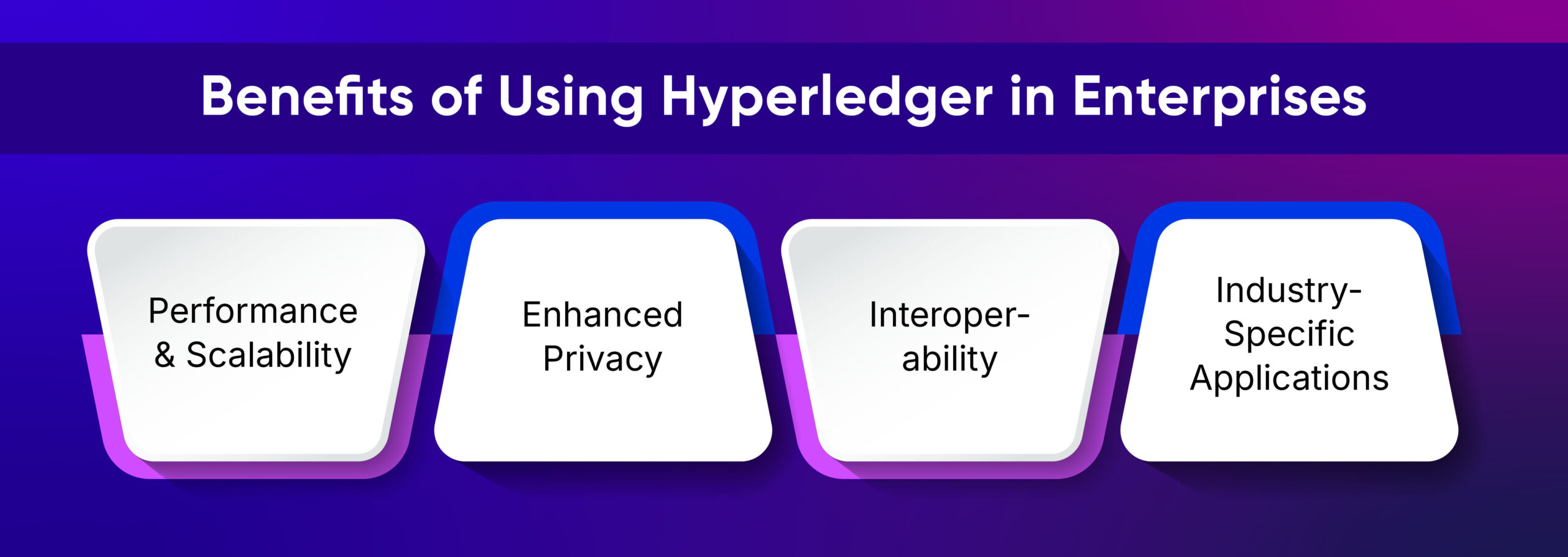
Introduction
Web3 & Blockchain Consultancy :
Utilizing Hyperledger for Enterprise Blockchain Solutions: A Comprehensive Guide
Blockchain Technology – a revolutionary force – is transforming how businesses operate and interact these days. Among the various blockchain frameworks that have been developed, Hyperledger stands out as a beacon for enterprise solutions. Initiated by the Linux Foundation, Hyperledger is not just one technology but a suite of open-source collaborative projects aimed at fostering cross-industry blockchain technologies. This blog discusses in detail the domain of Hyperledger Blockchain Development Services, offering insights into how businesses can leverage this technology to enhance their operations and secure their data in a decentralized manner.Understanding Hyperledger
- Hyperledger Fabric: Designed for enterprise solutions, it offers modularity and versatility in blockchain applications.
- Hyperledger Sawtooth: Focuses on building, deploying, and running distributed ledgers and can run both permissioned and permissionless blockchains.
- Hyperledger Indy: Provides tools, libraries, and reusable components for creating and maintaining digital identities rooted in blockchains.
- Hyperledger Besu: An Ethereum client designed for corporate use for both public and private permissioned network use cases.
- Hyperledger Iroha: Aimed at mobile application developers, offering a simple construction and integration of blockchain into infrastructural projects.
Core Features of Hyperledger
The core appeal of Hyperledger lies in its highly modular and configurable architecture. This allows enterprises to tailor their blockchain applications to fit precise requirements without unnecessary bloat. Key features include:- Privacy and Confidentiality: Through permissioned network access and confidential transactions, sensitive information is shielded from unauthorized access.
- Scalability: Designed to handle high transaction rates required by modern enterprises.
- Modularity: Enables plug-and-play components concerning consensus, ledger storage, and identity services.
Benefits of Using Hyperledger in Enterprises
Hyperledger’s architecture is uniquely designed to address the complex requirements of modern enterprises. Its tailored approach to blockchain solutions offers scalability, enhanced privacy, and interoperability, making it an optimal choice for various industrial applications. Below we delve deeper into these core benefits:
Performance and Scalability
Hyperledger excels in environments that demand high transaction throughput and robust performance. This is achieved through its advanced architecture that supports:- Efficient Transaction Processing: Hyperledger can process thousands of transactions per second, thanks to its effective consensus mechanisms that reduce latency and optimize throughput.
- Network Scalability: The ability to configure networks with varying sizes and complexities is a cornerstone of Hyperledger’s design. It supports the creation of large-scale networks through channels and private data collections, allowing businesses to scale their operations without compromising on speed or security.
- Resource Management: Hyperledger allows for fine-grained control over computational and storage resources, ensuring that the network can scale dynamically based on the demand and specific requirements of enterprises.
Enhanced Privacy
For industries where privacy and confidentiality are paramount, Hyperledger provides robust solutions:- Permissioned Network Access: Unlike public blockchains, Hyperledger’s permissioned nature ensures that all participants are authenticated and authorized to participate in the network. This is crucial for sectors like healthcare and finance, where data sensitivity is a concern.
- Channels for Confidential Transactions: Hyperledger Fabric supports the creation of private channels, allowing a subset of network participants to conduct private and confidential transactions, which are invisible to other network members.
- Data Segregation: Enterprises can control who can access what data through private data collections, ensuring that sensitive information is shared only with relevant parties without replicating it across the entire network.
Interoperability
Hyperledger’s modular and flexible architecture is built to work seamlessly with existing enterprise systems—a critical feature for large organizations with complex IT infrastructures:- Modular Architecture: Enterprises can choose specific components that fit their needs, whether they are looking for particular consensus models, ledger formats, or identity services. This flexibility facilitates easier integration with existing systems.
- Rich APIs for Integration: Hyperledger offers comprehensive APIs that enable easy integration with existing applications and systems. This helps organizations to leverage blockchain technology without needing to replace their current systems.
- Standards-Driven: Hyperledger projects are developed with a focus on adhering to established standards and protocols, which promotes interoperability between different technologies and blockchain networks.
Industry-Specific Applications
The real-world applications of Hyperledger span several key industries, each benefiting from its distinct capabilities:- Healthcare: Secure and efficient management of patient records, ensuring privacy and compliance with regulations like HIPAA. Hyperledger can facilitate interoperable health data exchange platforms that are secure, reliable, and accessible only to authorized entities.
- Finance: Hyperledger provides a foundation for building robust financial applications capable of handling everything from payment processing and real-time settlement systems to complex financial instruments. It offers the transparency required for regulatory compliance while maintaining the confidentiality and integrity of financial transactions.
- Supply Chain: Enhances traceability and efficiency in supply chains, enabling transparent and verifiable tracking of products from origin to retailer. Hyperledger can reduce fraud, improve inventory management, and enhance the overall accountability of the supply chain through immutable records of transactions and movements.
Hyperledger Development Services
Organizations venturing into blockchain technology can avail themselves of a plethora of services offered by Hyperledger developers. These include:- Custom Blockchain Network Development: Tailoring a Hyperledger framework to support specific business processes.
- Smart Contract Development: Crafting business contracts into immutable, automated smart contracts using Chaincode.
- Consulting and Implementation: Advising on the best Hyperledger tools and practices and implementing these solutions.
- Ongoing Maintenance and Support: Ensuring the network operates smoothly with regular updates and technical support.
Developing with Hyperledger Fabric
As the flagship project of Hyperledger, Fabric offers a rich set of features for enterprise use. Its architecture includes:- Peers: Nodes that commit transactions and maintain the ledger.
- Orderers: Nodes that ensure the consistency and sequencing of transactions.
- Certificate Authorities: Manage identity and user permissions.
Challenges in Hyperledger Development
While Hyperledger boasts numerous features beneficial for enterprise applications, it poses challenges such as:- Complex Setup: Establishing a Hyperledger network can be complex due to its modular architecture.
- Steep Learning Curve: New developers may find Hyperledger’s extensive features overwhelming.
- Integration Challenges: Integrating existing systems with a Hyperledger blockchain requires meticulous planning and execution.